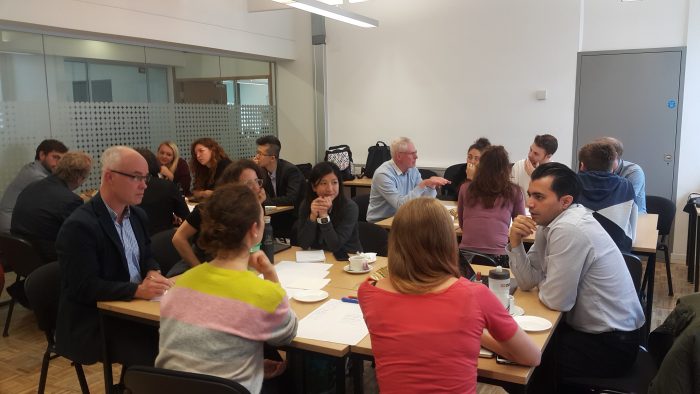My colleague Tom Cohen has put together the below call for abstracts for a session on active travel politics & policy, at the RGS-IBG conference. Please do submit! The deadline for submitting your abstract is 9am GMT (London time) on Monday 10th February. Not more than 250 words, by email to Tom (t.cohen@westminster.ac.uk), please.
(I’d also like to highlight other interesting RGS-IBG session calls on mobility related topics, including the Transport Geography Research Group sessions on topics including future mobilities, and one on the borderlands of active travel with a health focus).
SESSION TITLE: THE IMPOVERISHED POLITICS OF ACTIVE TRAVEL
Walking and cycling (collectively known as “active travel”) could be described as transport royalty: they bestow huge benefits and incur very low costs. From health and well-being, to social inclusion, to improved air quality and reduced carbon emissions, active travel might seem like a no-brainer.
But, in many places, its policy status would suggest the opposite. Studies of policy and governance have offered some explanations, including transport policy being in the hands of the (car-driving) elite; a focus on “strategic” (i.e. long-distance) movement; and active travel falling between different levels of governance. Cultural marginalisation and stigma matter: for instance, cycling as the “poor man’s mode” (or indeed the “new golf”); the invisibility of walking despite its ubiquity.
Whilst contexts where active travel is well established provide many insights, studying emerging active-travel cultures (and those that have struggled even to emerge) may be crucial in better understanding policy, governance, and cultural barriers to implementation and change; and how to overcome these.
We would especially welcome proposals addressing one or more of the following questions:
a)What are the interactions between the discourses/perceptions of policy makers, the media, and citizens in general?
b)What are the respective roles of elected politicians, civil servants and political and financial structures in determining the status of active travel?
c)What has been the process of change in those locations where active travel is being given higher priority? Where attempts have failed, why is this?
d)What effects does framing have upon attitudes to active travel?
e)What role does lobbying play in preserving the status quo?
f)What can be learnt from efforts to alter policy makers’ attitudes?
If you’d like to contribute to this session, please e-mail an abstract, not exceeding 250 words, to Tom Cohen (t.cohen@westminster.ac.uk) by 9am GMT on Monday 10th February. The precise format of session proposed for the conference will reflect the number and topics of submissions.
- School Streets: ATA podcast 2024:2 - July 1, 2024
- Accessibility and Urban Design: ATA podcast 2024:1 - January 25, 2024
- Queering Cartographic Methods: ATA podcast 2023:4 - July 6, 2023
